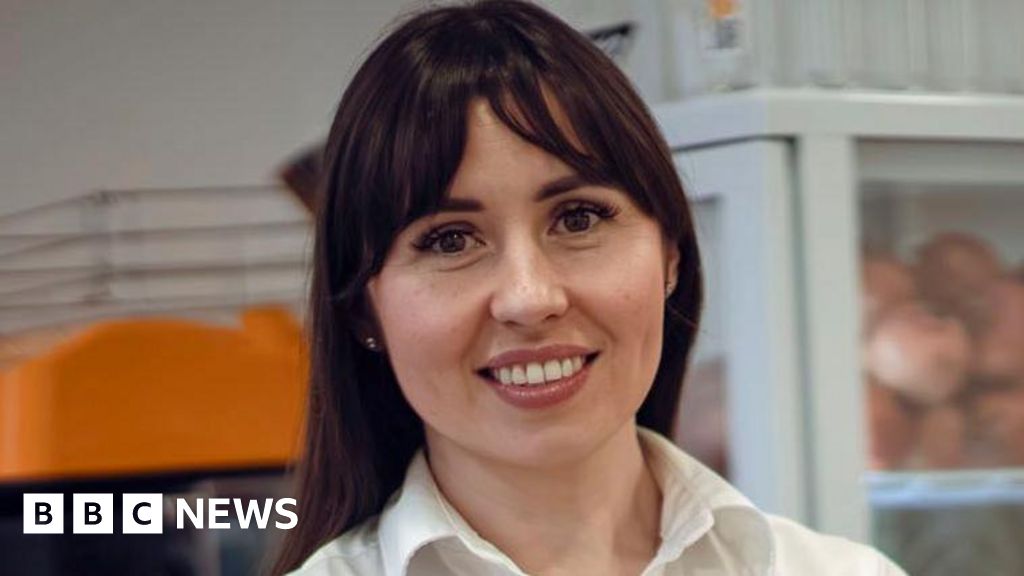The WHO approved a Kenya-based pharma company to produce a crucial antimalarial drug locally, reducing reliance on imports from India and China.
Malaria is a life-threatening disease caused by parasites transmitted to humans through the bites of infected female Anopheles mosquitoes.
It is preventable and curable, but poverty makes it deadly for those who can’t afford treatment.
In Kenya, it continues to leave a trail of loss and grief.
According to the World Health Organization (WHO), the country had an estimated 5 million malaria cases and over 12,000 deaths in 2022.
Most of those affected are children under 5 and pregnant women.
Winnie Akinyi, who lives in western Kenya, recently lost her sister Rosebella who fell ill in December and lost her five-month pregnancy before her death.
She says it was the latest of five deaths in her family attributed to malaria.
"It's incredibly painful for us. Malaria, a treatable illness, has claimed the lives of two family members who couldn't access treatment in time. Another loved one has fallen victim," she said.
"We're left wondering how we can conquer malaria and put an end to its devastating impact".
Akinyi is now a guardian of Rosebella’s 11-year-old son, the only survivor in the family.
Access to treatment remains a challenge
With public hospitals often grappling with medication shortages, and private facilities demanding exorbitant fees for care, access to treatment remains a challenge for people in Kenya.
"Most government facilities don't offer the exact medication that is doing away with the sickness of the malaria parasite," said Wilson Otieno Ogola, a 33-year-old accountant who has been admitted to a hospital three times for malaria and has received outpatient treatment countless times.
"In major cases, people opt to go to private facilities where they are going to get faster medication and a quality medication but it is never pocket-friendly," Ogola added.
The situation frustrates healthcare workers.
"There are a lot of instances where you'd like, as a healthcare worker you would like to give the drug of choice for the first line which is artesunate but because of unavailability or it’s just too costly for a population, most times we prescribe the drug but the patients don't get it from the pharmacy due to either unavailability or the cost," said Oswal Omondi, a medical officer at Nightingale Hospital Kisumu.
Beyond healthcare system shortcomings, Humphrey Kizito Otieno, who has lost both parents and six siblings to malaria, says cultural beliefs are in part to blame for delays in seeking treatment.
"Families believe so much in witchcraft, you find somebody is suffering from malaria, the symptoms are glaring but then a family would think that their child has been bewitched,” Otieno, a mortality surveillance field officer at Kenya Medical Research Institute (KEMRI), said.
"So, instead of seeking medication, the correct medication, they look for alternative ways of treating, like visiting religious people. Before you know it, this parasite has grown and has overwhelmed the person".
Local manufacture of a crucial antimalarial drug
Some progress has been made as the WHO approved the Kenya-based Universal Corporation Limited to produce a crucial antimalarial drug known as sulfadoxine-pyrimethamine plus amodiaquine, or Spaq.
The local manufacturing is expected to reduce reliance on imports from India and China and ensure timely access to medications.
"To increase self-sufficiency on the continent, with the stamp of WHO approval, it means that we are also internationally certified again as a quality manufacturer," Palu Dhanani, the founder and managing director of Universal Corporation Limited, said.
"And because the continent's problem, malaria is one of the biggest challenges, it will really help in lowering the dependency for imports as we saw during the COVID era where whatever was being imported actually had huge supply disruptions and malaria is such a thing that if you don't get the right medicine at the right time we all know it can cause unnecessary deaths".
But experts stress the urgent need for increased investment in the pharmaceutical sector to address diseases affecting low and middle-income countries.
"If we get more investment in manufacturing of medicines and essential medicines, including antimalarial, where the problem is, then we are likely to be more effective in addressing the problem, instead of relying heavily on importation of medicines. Africa is highly dependent on imports from India and China and that is not sustainable," said Michael Mungoma, the dean of the School of Pharmacy at Mount Kenya University.
In 2023, parts of Kenya participated in an important pilot of the world's first malaria vaccine, which helped decrease the number of deaths for children under 5.
Kenya's health ministry hasn't said when the vaccine will be widely available. The disease is still a significant public health challenge according to experts.
For more on this story, watch the video in the media player above.

 9 months ago
39
9 months ago
39









